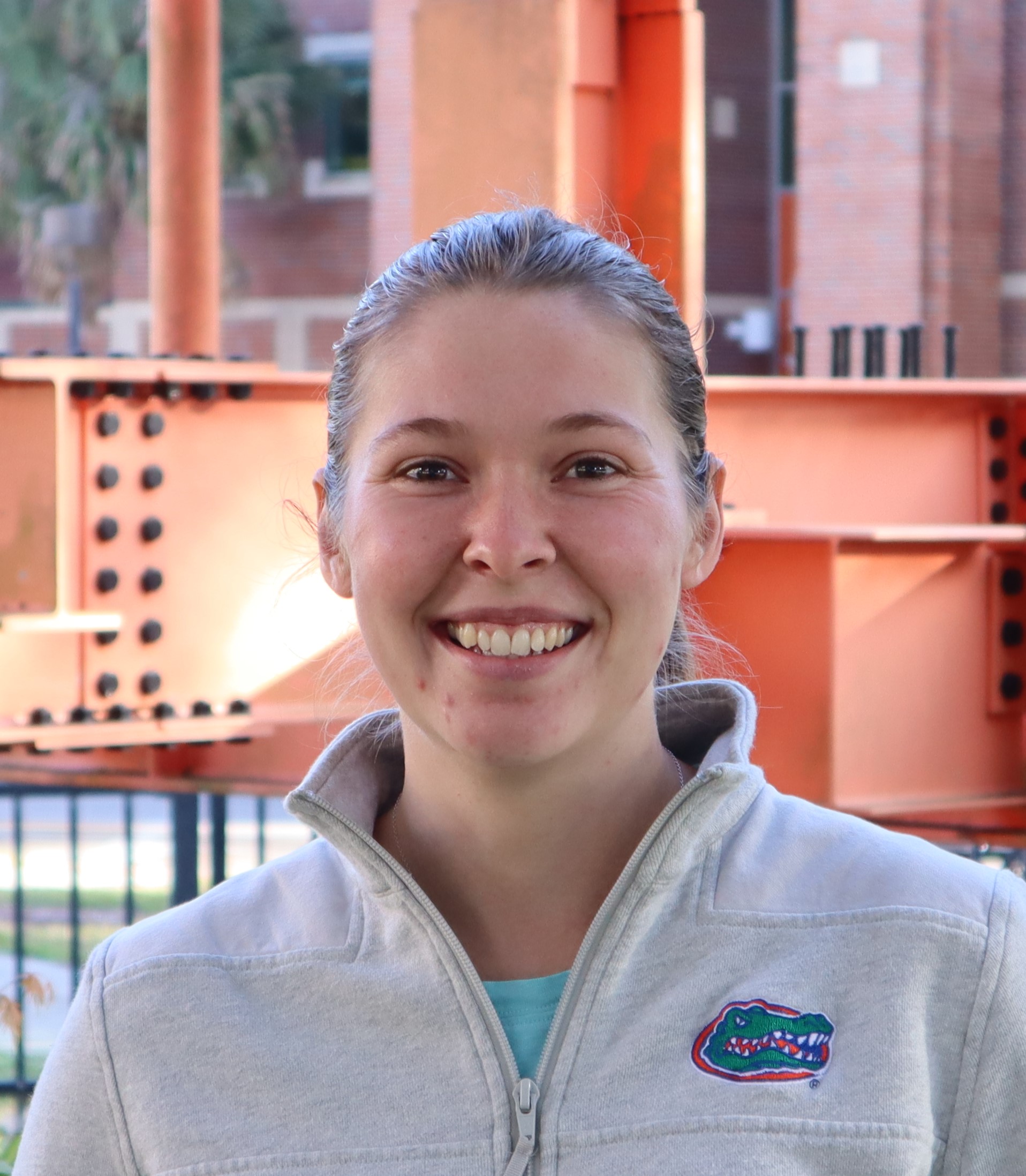
Interesting. Challenging. Applicable. Relevant. Diverse.
When choosing what to focus her research on, it was important to Elizabeth Gager that it met these five qualities.
Her position within the Nino Research Group met these expectations, even though the materials focus was not her original expertise.
Accepting a position in the group was a small leap of faith because the focus differed from her background, but there was one thing that made the plunge worthwhile: NRG’s advisor, Juan Claudio Nino. He encouraged Gager to pursue new heights in an unfamiliar area.
The group and Professor Nino’s reputation were intimidating, but she decided to rise to the occasion.
“I felt like [Professor Nino] was really going to push me to work a lot harder, and I didn’t feel like I was going to be able to skate by in the group,” she said.
This group was where Gager felt she would grow the most, making any challenges worthwhile if it meant her education and experience benefited.
Gager became an official member in 2020, two months before the COVID-19 pandemic took hold. While NRG has standard operating procedures and templates for all the research activities, peer guidance is a key component to the learning environment.
At the time, there was not another group member present to help train her on her project of choice. Her expertise was on processing and synthesis, but the person who was supposed to ease her into the group worked more on electrical characterization. As a result, with the pandemic creating a lack of peer guidance and NRG’s rigorous reputation, Gager’s transition to the group was not as smooth as she wanted it to be.
“I think I came in with the idea that I’m very smart, and I know how to do things,” Gager said. “But I didn’t have anyone else to show me how to do things, so I hit lots of walls and didn’t know how to get out of that.”
Now, she said, the group has someone trained on every piece of equipment, making the transition for new members a lot smoother. The levels of knowledge and experience are more evenly distributed, instead of having one seasoned member and one very new member.
In addition to the guidance of the group, the organization and workflow is another appeal to being an NRG member, Gager said. The group is diverse, and students have the ability to work on multiple projects if they wish.
Nino encourages his students to be creative and propose ideas, she said, and he does what he can to bring those ideas to fruition.
“Once I got into the group, I really realized how much he cares for his students,” Gager said. “Not just caring that they do their work, but on a personal level. He actually cares how you are doing and making everything work for you.”
With the wellbeing of his students in mind, Nino individually tailors his mentorship for each members’ work-style preference, she said.
This flexible learning environment contributes to members’ future success.
The work Gager has been involved with during her time in NRG has prepared her for her future career, she said. Eventually, Gager wants to reenter the industry, and because NRG is a part of many collaborative projects, her research has exposed her to many different disciplines within her line of work.
Another important feature of the group is its intellectual diversity. First and foremost, NRG is a ceramics group, but a member is exposed to many different subsets, Gager said. A member can specialize in one area but they have to know the other areas too.
If you know different techniques, you know what to bring in and what you have access to, she said.
“That’s usually the limiting factor,” she said. “It’s not that you don’t have access to something; it’s that you don’t know you have access to that.”
It is best to keep an open mind and ask as many questions as often as possible, Gager said.
The experience and time as a NRG member is really what the member makes of it, she said. For example, Nino is not afraid to let an undergraduate student take the lead on a project.
One can begin under another member and learn the ropes, or they can take the lead and write their own papers — a characteristic very different from other groups Gager has worked with.
The responsibility of educating one’s peers seems to help everyone learn more because having to explain the work to others deepens personal understanding, she said.
Overall, Gager advises future members to not worry about having prior experience. The group will teach you everything you need to know if you join, she said.
“I had experience, but I’m not doing anything that I’ve had experience with,” Gager said. “I think we are always looking for someone who’s motivated and very curious.”